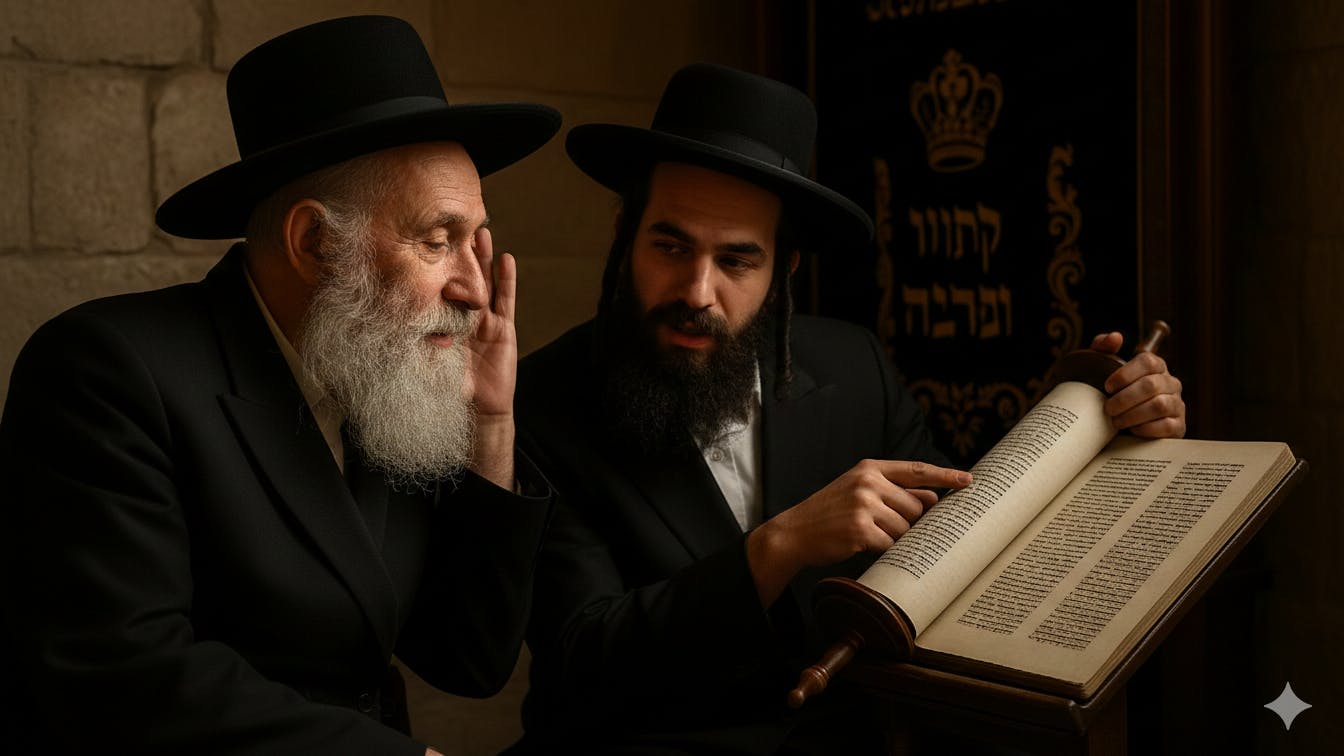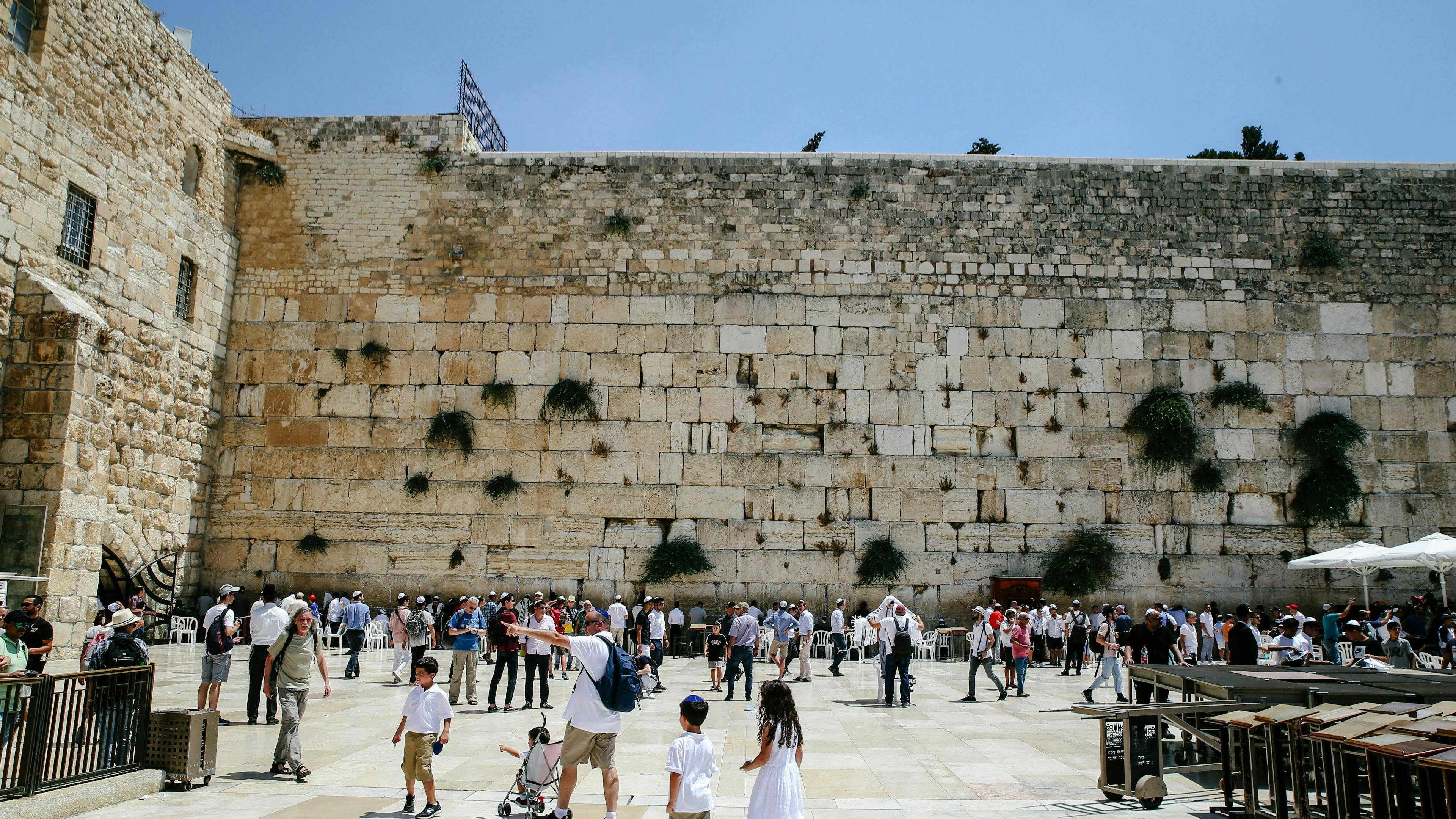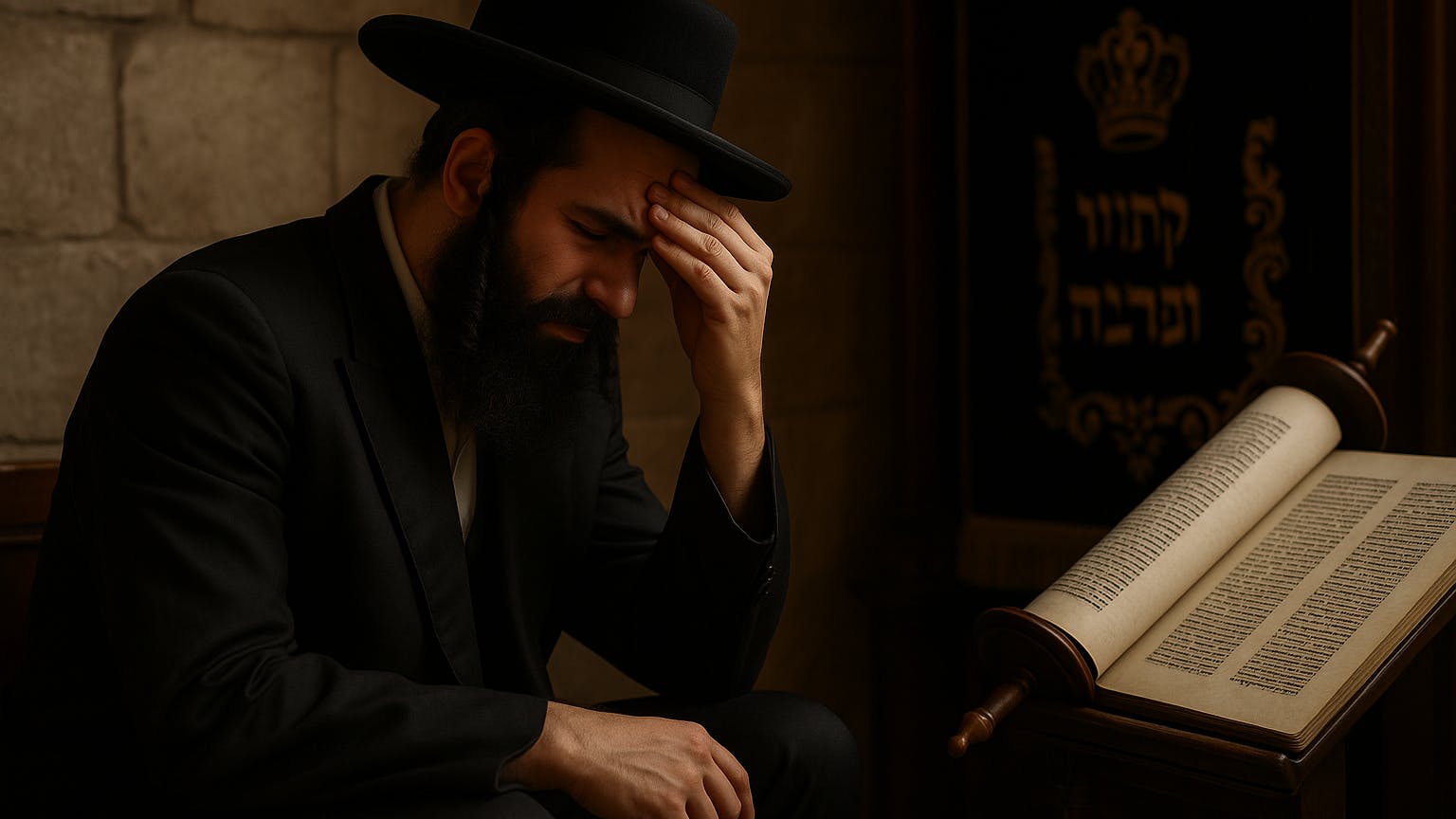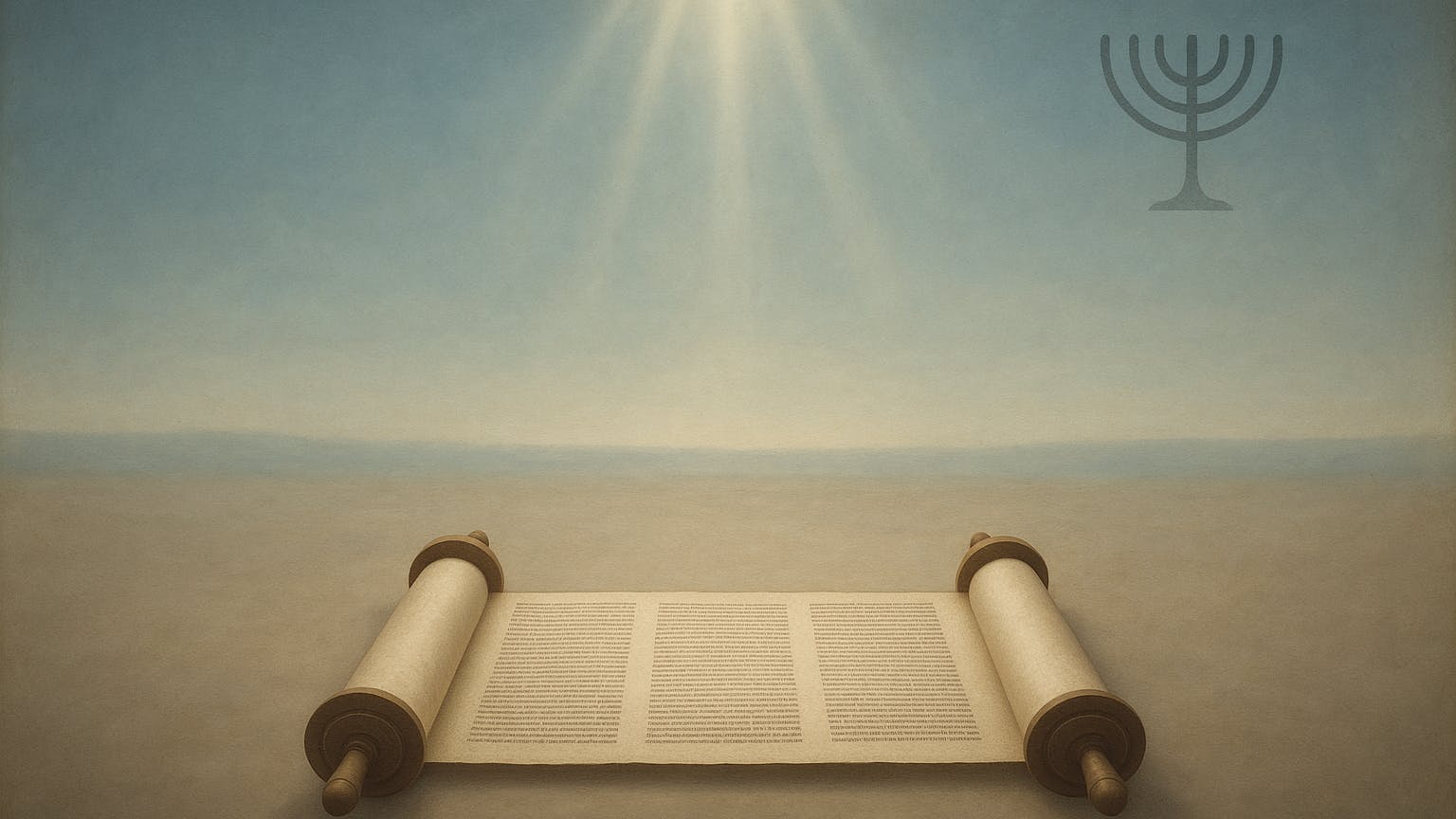Have you ever wondered why it is that, when we read the Haftarah, some chapters are left out?
Perhaps you think, “Well, that’s obvious. Many chapters didn’t make it into the Haftarah; there are only so many Sabbaths, holidays, and days of fasting in a year.”
True, but there is one chapter that has caused so much controversy it stands out from the rest. It is Isaiah 53, also known as “the forbidden chapter.”
Have you noticed? We read part of Isaiah 52, and then, suddenly, we’re in Isaiah 54.
This is because the seemingly mysterious figure spoken about in these verses has kept religious leaders and rabbis up all night, scratching their heads and – dare I say it? – afraid.
If that sounds slightly on the dramatic side and you are tempted to brush off its exclusion as a mere practicality, we encourage you to keep reading. The real reason this chapter is ejected is very, very curious.
A Bit of History
Let’s delve into history for a brief moment.
One theory agreed upon by rabbis regarding this chapter’s disappearance from the Haftarah is that King Antiochus forbade Jews from reading the Torah in the 2nd century B.C.E., so the sages only included the portions of the Prophets that had themes corresponding with the outlawed Torah readings.
But Chapter 53 was not always excluded from the Haftarah readings. According to 17th-century Jewish historian Raphael Levi, this chapter used to regularly be read in synagogues.
Notice it was not King Antiochus that removed it, but Jewish religious leaders.
Why? Because the debate regarding this Messianic prophecy caused such heated “arguments and great confusion” in the religious community that the rabbis decided to simply erase it from the Haftarah.
What Is Isaiah 53 About?
Isaiah 53 is a prophecy describing One who, according to Isaiah, has been chosen by G–d to “atone for the sins of many.” This mysterious person would be the Messiah.
What would the Messiah achieve, and why do we believe these verses are fulfilled in Yeshua? Let’s break them down to find out.
- Isaiah 53:1
Who is the “arm of the Lord”? According to Isaiah, he is the Messiah, as he refers to Him in Chapter 40 (as well as in Chapters 51 and 52). - Isaiah 53:2
Contrary to popular Halacha teachings, the Messiah, described here, did not come from great wealth or a prestigious family of rabbis. He was not esteemed, but took on a humble appearance. This was clearly true of Yeshua: born among the animals and laid in a manger, exiled to Egypt, and, upon His return to Israel, living in Nazareth, a tiny, working-class town (Luke 4:16–28). - Isaiah 53:3
The Messiah would be rejected by society and an outcast. To this day, Yeshua is rejected and shunned by His own people (Mark 12:10). - Isaiah 53:4
Yeshua took our sickness upon Himself, yet He was beheld as one cursed and not recognized as chosen by G–d to bear our sins (Zechariah 12:10). - Isaiah 53:5
Yeshua was beaten, bruised, chastised, and eventually crucified as punishment by the Romans for crimes He did not commit (John 19). - Isaiah 53:6
The people of Israel had rejected Him and gone astray; still, despite their rejection of Him, He would take away their sins (John 10:22–42). - Isaiah 53:7
Yeshua, when accused and put to trial, did not defend Himself, although He could have. He took the blame so that He could pay the price for our sins (Mark 15:3–5). - Isaiah 53:8
Yeshua was “cut off out of the land of the living,” meaning He died, for the transgressions of the people (Matthew 27:32–56). - Isaiah 53:9
Although He was treated like a criminal at His death, He was buried in the tomb of a rich man, Joseph of Arimathea (John 19:38–42). - Isaiah 53:10
It was G–d’s will for Him to give up His life as the ultimate sin offering (John 3:16–17). - Isaiah 53:11
Despite His death, He would be resurrected (“His days will be prolonged”), so that, by receiving Him, many would be saved from their iniquities (Luke 24). - Isaiah 53:12
Yeshua’s sacrifice on the cross was a mediating act of intercession. Because He gave up His life, considered a criminal but found righteous, we all benefit from His forgiveness today (Deuteronomy 18:15–22).
To read this summary together with Chapter 53, click here
What If it is True?
What many rabbis lead people to believe is, since the word “Messiah” does not appear in the text, it can’t possibly be about Him, but perhaps about martyrs such as Rabbi Akiva.
Another theory is that it is merely a poetic description of Israel, and Christians take advantage of the ignorance of readers who are not wise enough to understand it – which greatly underestimates the abilities of Jewish readers to interpret it clearly. Not only that, but to claim this chapter is about Israel is to claim that Israel as a nation is its own savior. Can Israel forgive sins in the place of an animal sacrifice? Can it bear its own iniquities or the sins of many? And who is the “we” that Isaiah speaks of in the chapter, if not Israel, to whom this Messiah figure is revealed? If Israel is talking to itself, but jumps from “we” to “he” from verse to verse, we’ve got a different problem on our hands: the literacy of the prophet!
What is the real reason this chapter was removed?
Because it would risk people linking these verses to Yeshua and coming to believe in the legitimacy of His claim to be the Messiah.
Then again, the Scriptures themselves prophesy that the Jewish people will reject the Messiah (Psalm 118:22).
Put the Title Aside
Some claim that the term “the forbidden chapter” is just a scary label slapped on an innocent chapter by Christian missionaries and that religious leaders have no qualms about debating “these non-controversial chapters.”
If you have never read Isaiah 53, it’s hard to draw a conclusion either way. You might never have had the opportunity to read this chapter. You may fear seeming “better than everyone else” or being shut down for seeking out things “too lofty” for the average person’s understanding.
A helpful approach would be that of the Ethiopian Eunuch, a Jewish proselyte who is described in Acts 8:26–39. Reading Isaiah 53, he wanted to understand who this suffering servant was, who had been led as a lamb to the slaughter. He found a truth that changed his life so drastically, he immediately wanted to be cleansed by water!
If you have never read Isaiah 53, you can read it here. It is not scary or too lofty to understand; it only requires a little research into its proper context and, perhaps, a dash of open-mindedness.
The bottom line about the Messiah described in Isaiah 53 is that He came to take away the sins of all who trust in Him. In G–d’s great mercy, He told us in advance that the Messiah would not appear desirable, but humble – One who only the humble among us will receive.
More Topics
You might alsoo be interested in these topics.




